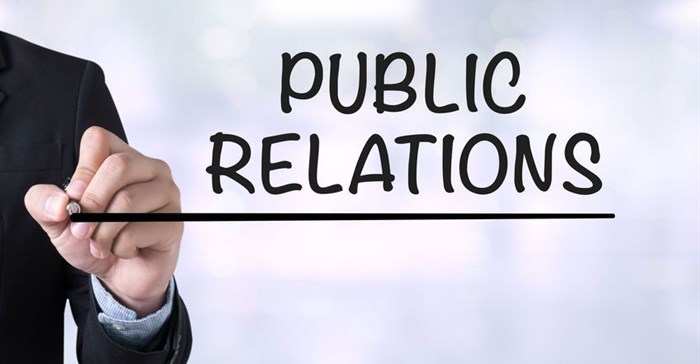Today, 16 July, we celebrate World PR Day. The theme, The Future of Public Relations in a Changing World, emphasises the evolving role of public relations (PR) in today’s dynamic landscape, where reputation is paramount.

Source: © 123rf
123rf Adam Hunter, head honcho at Hook, Line & Sinker looks at the future of PR in a changing world on World PR Day
The global PR market is valued at $106.93bn (R1.92tn), with an anticipated annual growth rate reaching $144.28bn by 2028.
While the numbers are a positive reflection of the industry, the future of PR relations is in flux. More than ever before.
And as the world undergoes rapid transformation, so too does the role of the PR practitioner.
With technology disrupting industries, media landscapes shifting, and societal expectations evolving, the profession faces extraordinary challenges.
At the heart of these changes lies the importance of reputation, a cornerstone upon which PR is built.
In exploring the future of PR, it’s a timely platform to explore the complexities and potential of this dynamic field.
As we navigate a media landscape marked by declining traditional outlets and the rise of digital platforms, we must redefine our strategies and embrace new approaches to building and protecting reputation.
Reputation matters
Reputation, that intangible asset underpinning a person or organisation’s success, is the cornerstone of PR.
While it has always been a critical aspect of PR, reputation management has amplified dramatically in the digital age.
With the constant evolution of technology, social media, and 24/7 news cycles, protecting and enhancing reputation is now more challenging and crucial than ever before.
As we have seen, the media sector is under threat. Newsrooms worldwide have shrunk dramatically in recent years.
Last week, Media24 halted planned retrenchments and newspaper closures, the overall contraction has considerably weakened the power of traditional media outlets.
This crisis raises critical questions about the future of journalism: how will the flow of information be affected, what will happen to quality reporting, and how will misinformation and erosion of public trust be addressed?
Since our core function is to build and protect reputations, we need to communicate effectively, which is why building and maintaining a strong relationship with journalists is critical as media coverage significantly shapes public perception.
As influence has become the new currency, the media landscape has rapidly transformed into a shift towards digital media.
Since social media platforms are now dominating attention and shaping behaviour, journalism is under growing pressure in pursuit of relevance.
This is driving some outlets toward sensationalism, fake news, and clickbait to boost engagement, undermining the integrity of quality journalism.
The future is digital, and authentic.
Digital PR has become an essential aspect of modern-day PR.
By harnessing the power of digital channels, businesses can effectively and strategically promote their brands, products, or services to a vast audience.
With more than half of PR agencies struggling to get responses from journalists, and most (66%) PR professionals aiming to produce measurable outcomes, digital PR has emerged as a critical component of modern business strategy.
As organisations seek to expand their online footprint, digital channels must be leveraged to reach and engage target audiences.
The dynamic nature of social media and digital platforms necessitates a constant evolution in digital PR strategies.
To effectively reach and resonate with target audiences, PR professionals must stay abreast of the latest trends and data. PR professionals must also prioritise truth and authenticity over embellishment.
Building strong relationships with specific journalists is crucial in today’s landscape, as media outlets grapple with reduced resources and increased pressure to deliver results.
#PowerofPR
PR is about building and maintaining good reputations and relationships. It’s about earning trust, and telling authentic stories.
PR can – and should be — a force for good and not simply to polish reputations with crisis communication efforts after the damage is done.
Some examples of PR’s positive role in society include:
- In Cape Town, PR played a crucial role in managing the 2018 water crisis and averting a potential disaster, by crafting a clear and urgent message about the severity of the situation, which helped mobilise public support for water-saving measures.
- From anti-smoking initiatives to vaccination awareness, PR has been used to educate and influence public behaviour. It’s helped amplify the voices of marginalised communities and raised awareness for issues like climate change, poverty, and inequality. It has aided nonprofits in securing funding, building partnerships, and engaging with their communities.
- PR is also crucial in managing — or inflaming — crises like public health emergencies such as the Covid pandemic, or civil unrest, as we saw in the wake of the Ferguson riots in the US.
Shining the spotlight firmly on reputation management
Some might see a bleak future for human labour and a surge in job losses due to the boom in automation.
AI’s blurring of lines between human and machine-generated content has only intensified our yearning for authenticity, which shines the spotlight firmly on reputation management and the future of PR.
Because at its core, PR is about building and sustaining reputations.
Happy World PR Day!





































